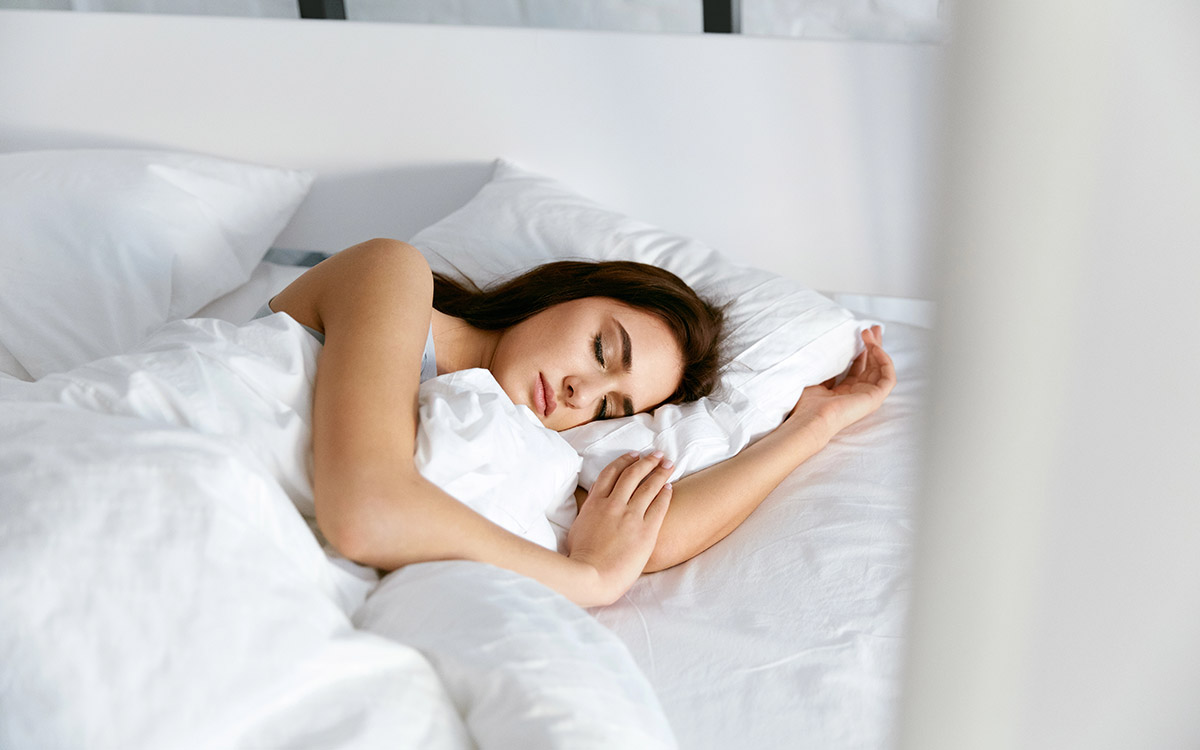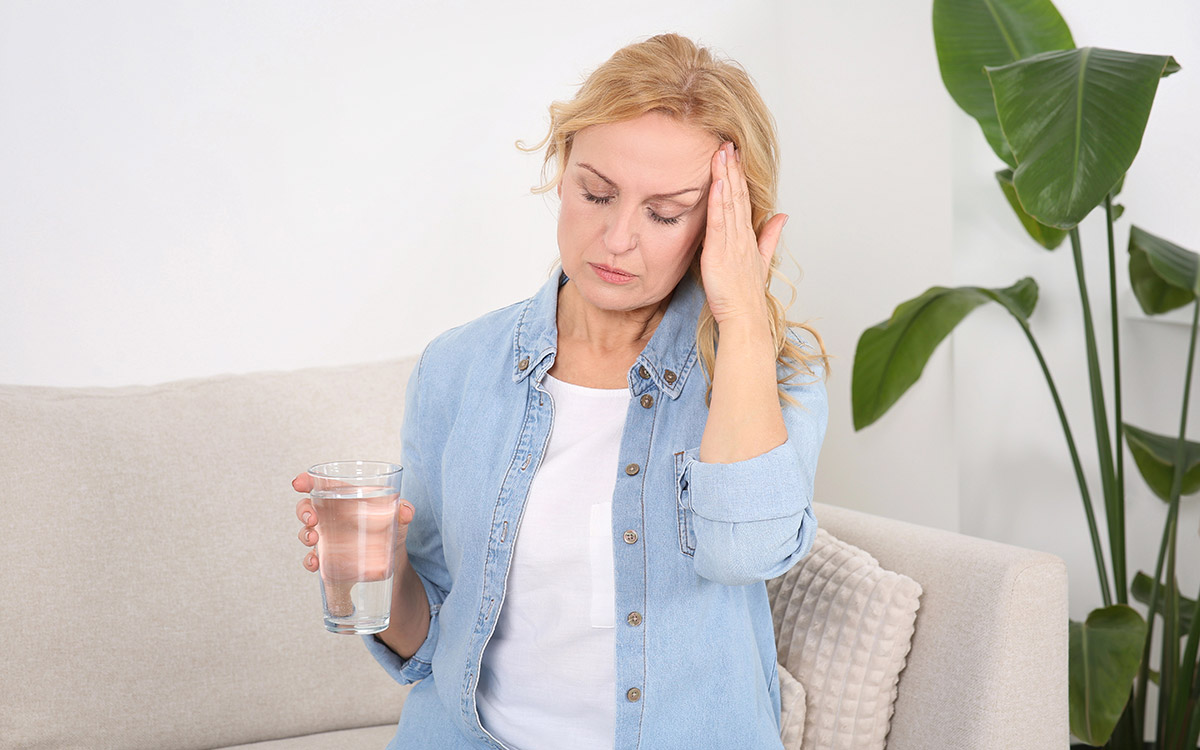When your hormones fall out of rhythm, your sleep does too. Here’s how balancing both can restore your rest, energy, and overall health.
Most people think of sleep as something controlled by habits or stress, but your hormones play just as important a role. From the moment you wake up to the time you drift off, your body runs on a carefully timed cycle of hormonal signals that regulate energy, relaxation, and recovery.
When those hormones fall out of balance, sleep becomes one of the first things to suffer. You might fall asleep easily but wake up too early, or toss and turn all night feeling wired yet exhausted. Over time, disrupted sleep can trigger fatigue, mood swings, and further hormonal imbalances, creating a cycle that feels impossible to break.
At King’s Pharmacy and Compounding Center, we work with patients who face this very issue every day. Many find that by restoring hormonal balance through customized compounding and holistic care, they can finally regain deep, restful sleep.
“Hormones and sleep are inseparable. When one is off, the other follows.”
How Hormones Influence Sleep
Several hormones work together to control your sleep-wake rhythm, also known as your circadian cycle. Understanding how they function can help explain why even small imbalances affect how well you rest.
Melatonin: The Sleep Starter
Melatonin is produced by the pineal gland and signals your body that it is time to wind down. Levels rise at night and fall in the morning. Stress, blue light exposure, and irregular sleep patterns can all suppress melatonin, making it harder to fall asleep.
Cortisol: The Energy Regulator
Cortisol is often labeled the “stress hormone,” but it also keeps you alert and active during the day. It should be high in the morning and lower at night. Chronic stress or adrenal imbalance can cause cortisol to stay elevated into the evening, which disrupts melatonin and keeps your body in a state of alertness.
Estrogen and Progesterone: The Hormonal Harmonizers
In women, these hormones fluctuate throughout the menstrual cycle and drop significantly during perimenopause and menopause. Progesterone promotes calmness and relaxation, while estrogen supports serotonin and melatonin production. Low levels of either can lead to insomnia, hot flashes, or night sweats that interrupt sleep.
Testosterone: The Restorative Hormone
In men, testosterone supports deep sleep and helps repair muscles and tissues overnight. Levels typically peak during REM sleep, which means chronic sleep loss can lower testosterone, creating a feedback loop of fatigue and poor recovery.
“When hormones work together in rhythm, sleep feels effortless. When they drift apart, even rest feels like work.”
Signs That Hormones May Be Disrupting Your Sleep
Because hormonal shifts happen gradually, it is easy to overlook the connection between poor sleep and internal imbalance. Common signs include:
- Trouble falling or staying asleep
- Waking frequently during the night
- Feeling unrefreshed even after a full night’s rest
- Night sweats or hot flashes
- Morning fatigue or brain fog
- Increased anxiety or irritability
If these symptoms sound familiar, they may point to underlying hormonal fluctuations rather than simple sleep hygiene issues.
How Hormone Imbalance and Sleep Feed Each Other
Poor sleep affects hormone production, and hormone imbalance makes sleep worse. This relationship is cyclical and often intensifies over time if left untreated.
For example:
- Lack of sleep raises cortisol levels, which can interfere with thyroid function and increase insulin resistance.
- Low progesterone or testosterone reduces your ability to reach deep sleep stages, leaving you tired despite spending hours in bed.
- Reduced estrogen can disrupt serotonin and melatonin, both essential for relaxation and mood stability.
Over time, these effects compound, leading to energy crashes, weight gain, and emotional burnout.
Restoring Balance Through Personalized Hormone Therapy
One of the most effective ways to improve sleep naturally is to address the root hormonal cause. At King’s Pharmacy and Compounding Center, our pharmacists collaborate with healthcare providers to design bioidentical hormone therapy (BHRT) plans tailored to each patient’s needs.
Customized BHRT can help:
- Rebalance estrogen, progesterone, or testosterone levels
- Support healthy cortisol rhythms
- Enhance melatonin response
- Stabilize energy and mood throughout the day
By restoring hormonal alignment, the body can return to its natural rhythm of daytime alertness and nighttime rest.
Why Compounding Matters
Every patient’s hormone profile is unique. Compounding allows precise control over hormone type, dosage, and delivery method to match your body’s chemistry.
Available formats include:
- Topical creams that provide consistent absorption
- Sublingual lozenges or troches that bypass the digestive system
- Capsules for controlled systemic support
Each prescription is carefully formulated to promote balance without unnecessary fillers or additives.
“True recovery happens when your body’s hormones and circadian rhythm are finally in sync.”
Additional Strategies to Support Restful Sleep
Hormone therapy works best when paired with healthy sleep habits. A few small changes can make a noticeable difference:
-
Reduce Blue Light Exposure at Night
Limit phone and computer use before bed or use warm light settings. Blue light suppresses melatonin and delays your sleep cycle. -
Create a Consistent Sleep Schedule
Going to bed and waking up at the same time each day helps regulate cortisol and melatonin naturally. -
Support Relaxation Through Diet and Movement
Light exercise, such as walking or yoga, helps lower cortisol. Foods rich in magnesium, omega-3s, and tryptophan promote calm and deeper sleep. -
Limit Caffeine and Alcohol
Both can interfere with natural hormone function and disrupt the restorative phases of sleep. -
Practice Mindful Stress Management
Chronic stress is one of the most common disruptors of sleep hormones. Meditation, deep breathing, and quiet evening routines can all help.
At King’s Pharmacy, we believe in a holistic approach to hormone health. Restoring balance is about more than medication; it is about supporting your body’s entire rhythm.
The Long-Term Benefits of Hormonal Balance
When hormones are properly regulated, sleep becomes deeper, metabolism stabilizes, and emotional resilience improves. Over time, patients notice:
- Increased morning energy
- Clearer focus and memory
- Healthier weight and appetite control
- Stronger immune function
- Improved mood and stress response
These benefits build on each other, creating a foundation for lasting wellness and longevity.
Rest, Renew, Restore
Good sleep is not a luxury; it is a biological necessity that fuels every system in your body. If you have been struggling with restless nights or unexplained fatigue, hormones may be the missing piece.
Contact King’s Pharmacy and Compounding Center today to learn how personalized hormone therapy and wellness support can help you restore balance and reclaim restful sleep. Our expert compounding pharmacists will work with your provider to design a customized plan that brings your hormones—and your nights—back into harmony.








